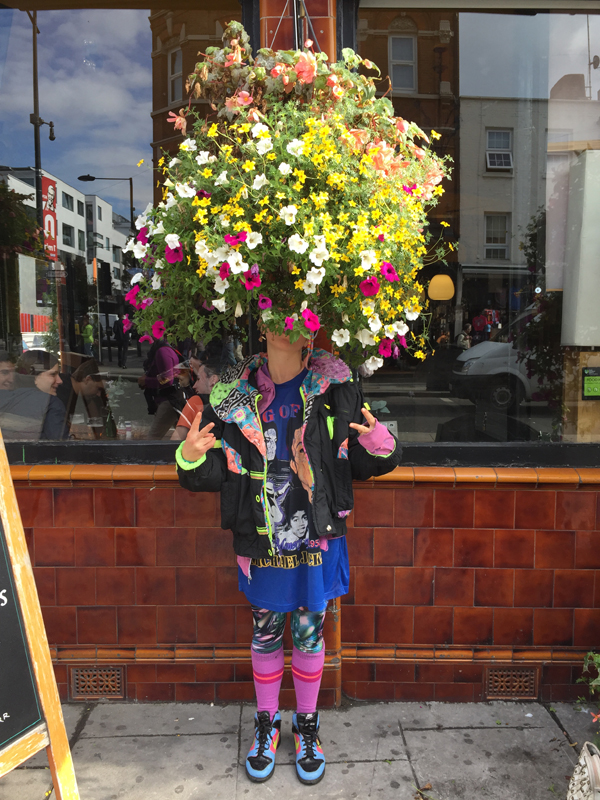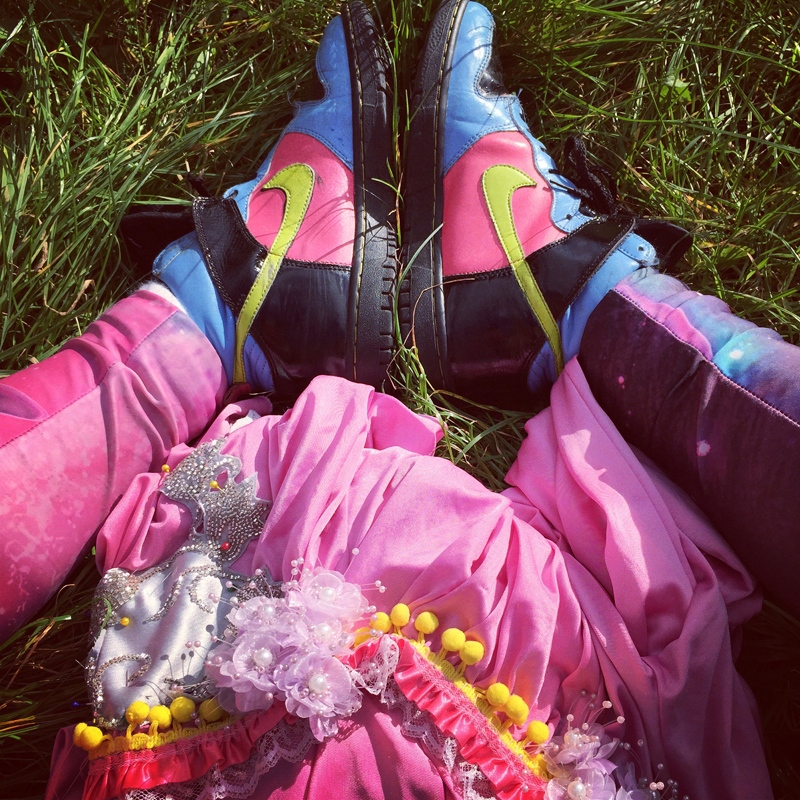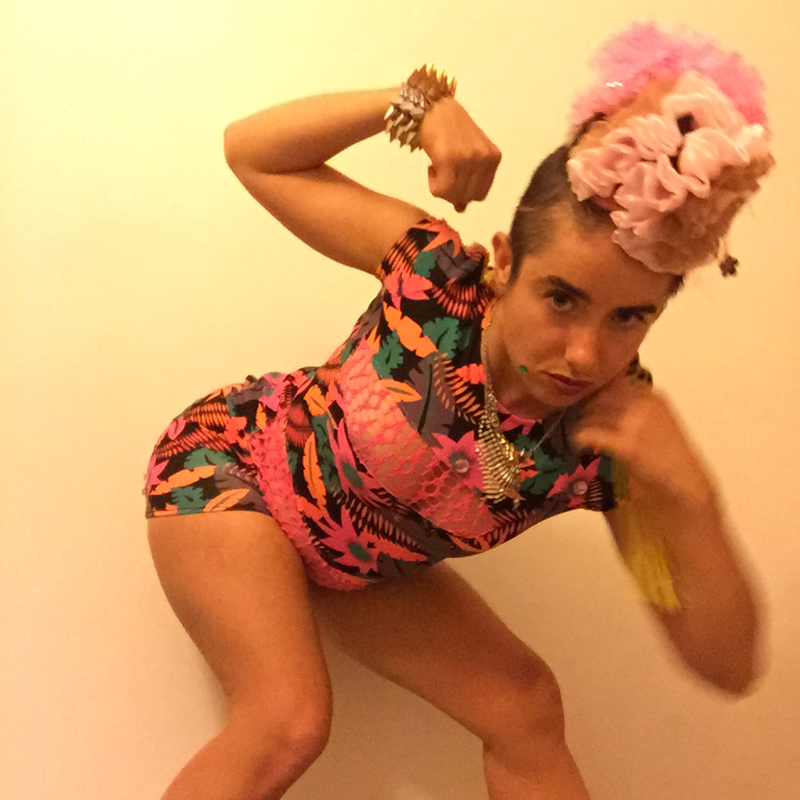Push Pop Collective Co-leader Katie Cercone on Feminism, Freedom Fighters & Her First Few Weeks in the UK
As Dr. Helen Pankhurst said during her recent talk in Alexandra Park, “It’s always easy to be on the right side of history – we’re all now suffragettes.” What Helen’s talk seems to ask, which I’d like to echo here is – how are we supporting radical feminist protest movements of today? It’s fine to have a beer, smile, nod and stay on the right side of history, but what about now? At the time, many suffragettes faced violent confrontations with law enforcement officers. Emmeline Pankhurst herself was forced to train in the Martial Arts as a way to defend herself against the police.
Historically, any type of civil disobedience and rejection of the status quo has been associated with madness and anti-social behavior. Take how the American Psychiatric Association’s Diagnostic and Statistical Manual’s (DSM) entry defining “schizophrenia” changed significantly during the civil rights era. Prior to the 1960’s, schizophrenia was characterized as an illness of white female docility impacting on a woman’s ability to fulfill her duties as a wife and mother. During the 1960s civil rights era, fear and anxiety catalyzed a new definition of schizophrenia, one linked to masculinized belligerence, aggression, hostility, black male anger, “protest psychosis” and “delusional anti-whiteness” associated with followers of Malcolm X, Black Muslims, and too often black males in general whether they had any connection to the civil rights movement or not. White women were heretofore diagnosed with anxiety disorders and depression, pumped with pharmaceuticals and sent back to the kitchen. As schizophrenia became a black disease, the “prison industrial complex” emerged as a new institution replacing asylums.
As we very well know, the boundaries of sanity always closely align with the boundaries of the status quo.[i] Where I come from in Brooklyn, it’s primarily Black and Latino males that learn martial arts to ward off violent confrontations with police. As “POSTCODE Criminals,” an artistic collaboration between American artist Dred Scott and British artist Joann Kushner (Rush Arts, 2012) has demonstrated, the situation of racially motivated police brutality in the UK mirrors the American one. When sports money pumps £5.5m into a “public” park, let’s make sure we’re asking the right questions, like: Why the need to cut down all those trees? and Do those overpriced tennis courts really serve the mostly Muslim, African and Caribbean constituents of the outlying neighborhoods or just reinforce some antiquated fantasy of white Victorian England? When we celebrate the revival of Alexandra Park as the old stomping grounds of the suffragettes, let’s go beyond the safe space of history toward supporting human freedom in the lived experiences of those waging today’s wars of social justice. The protestors in Ferguson for instance, or young girls of the Muslim diaspora who are gunned down for attempting to go to school.
Dr. Helen Pankhurst, for one, is on the frontlines in Ethiopia (where she was born) educating young Muslim girls on their basic human rights and tackling cultural-specific menstrual hygiene issues that often discourages girls from going to school. These are still hugely controversial issues, and as Pankhurst explained to the media, very few people are interested in her current activist work and prefer to revel in colorful stories about fun-loving, wacky, colorful suffragettes of the bygone past. In an age when it’s not certain what the vote counts for at all, glorifying the revolutionaries of the past could serve as another clever diversion from looking at the more complicated and controversial issues contemporary feminists and all disenfranchised communities face in the here and now.
What is interesting in light of our current residency in Manchester and our general Go! Push Pop work, is our clear alignment with the spirit and tactics of suffragettes. “The suffragettes were anything but drab…the color, the fun, the popping up here and there, the wackiness of a lot of their approaches, they were left of center thinkers, they were not conventional mobilizers,” Dr. Pankhurst explained. Following her talk, I spoke about our work as Go! Push Pops with a slideshow presentation highlighting some of our most important works. To a largely mixed and intergenerational audience I spoke about drawing from paganism and shamanism, the importance of earth-sky awareness and the reclaiming and resacralizing of the female archetypes as central to all creation and the experience of female power. I talked about embodying our feminism and using social media, live performance and workshops with at-risk youth to create a global stage for the future of feminism. As Lotte, who runs Alexandra Arts told me later, it was clear from the looks on peoples faces in the audience I was broadening the horizons for some concerning what Art is and how it should function socially. Afterwards, I talked to more than a few young feminist women in the audience who were excited about our work and ready to sign on to the final group ritual on November 28th when we’ll perform in Alexandra Park to mark the end of our residency. So far, the energy of the artists I’ve met here in Manchester has been catalyzing. Women and men are rethinking about their relationship to the sacred, to their bodies and minds and hearts, and working in queer, colorful collectives for radical change - as are we.
Currently, I’m having a blast scouring the local charity shops for colorful bits to include in our final performance, as well as gearing up to teach simple yoga, mindfulness and holistic art therapy for the Moms of Alexandra Art’s sister organization St. Mary’s School. Both projects will focus on women’s ritual, mindfulness, earth-based living and the Goddess as a divine channel of power. Women have been circling up since the beginning of time. The circle is the declaration of sacred ground and a container of energy raised. Through incantation, movement mantra and the transformative power of free play, Go! Push Pops intend to honor the fierce fighter spirit of the Pankhurst lineage that has been culturally erased from Moss Side where she was born and raised. It is through taking on the archetypal power of the Goddess that we root into the earth, expanding our egos until they stand beside the Goddess-Creatrixxx.
Magical rituals are psychodramas, and things may get wild. In addition to collectively agreed upon movement mantras, vocalizations and gestures of power in the vein of the Pankhurst lineage combined with a glittering bricolage of transcultural spiritual traditions, our final ritual will include freestyle interludes. In the nebulous space of free-form movement ignites the pyrotechnics of pure energy. Go! Push Pops typically draw upon the energies of the intercultural Maiden Goddesses of beauty, creativity and desire. Arretos Koura, for example, is an ancient Greek phrase for the ineffable Bride, the Nameless Maiden. She is one who spins a cosmic dance from which all things come into existence. Arretos Koura is the original artist, the “transcendent unique” the creatrixxx of all uniqueness.[ii] She is one point of origin for our final performances; with more to come as we gear up with London based v-jay Pablo Melchor and a team of student architects who will build a site-specific installation for the ritual.
For those interested in participating in our final ritual collective performance, message me on the Go! Push Pops Facebook page for more info. For updates on Go! Push Pops Alexandra Arts Residency, follow @gopushpops and @mysticalratchet on Instragram and Twitter.
[i]Jonathan M. Metzl, The Protest Psychosis: How Schizophrenia Became a Black Disease Boston: Beacon Press, 2009
[ii] Margot Adler, Drawing Down the Moon: Witches, Druids, Goddess-Worshippers and Other Pagans in America Today Beacon Press: Boston, 1986


















